When marginalized communities gather and mobilize, it interrupts the status quo. We have seen examples of this across history many times; the righteous indignation of the Civil Rights movement and how Black communities gathered in churches and schools. It was the audacity of transgender women at Stonewall Inn who courageously threw the first bricks for equality for LGBTQ+ people. It was many marches that forced people to act up and bring attention to the AIDS epidemic. It was the hundreds of moments when Black and brown communities took to the streets to protest for more police accountability and proclaim that Black lives do matter. These moments have defined history, because the individuals who were pushed to the side made a decision to gather to save their lives. And now, these moments are moving online.
On Thursday, April 2, Black gay men gathered from across the United States to discuss issues impacting their lives and to distribute information about COVID-19 in a Zoom meeting. 215 users registered from across the country to hear information from Dr. David Malebranche, PJ Moton - Poole, Kenyon Farrow, Daniel Driffin, and GLAAD's Programs Officer, Communities of Color, DaShawn Usher.
All attendees had to pre-register to the event to gain access to the Zoom meeting. Upon completing the registration, Zoom sent an automatic confirmation and meeting details to attendees. As organizers, we checked all of the security controls and even ran a test run. We were ready to go.
Trending stories
When the meeting started, there were over 120 people that had joined the Zoom call. Participants were muted upon entry but had the ability to unmute themselves (a feature that appears to be more hidden in the platform). Upon starting the event, Dr. David Malebranche began to provide a medical update on COVID-19 and was quickly interrupted by a song that contained racial slurs. At that moment, it became clear that something was wrong.
The song played for over a minute as our host tried to sort through the 120 people that were in the Zoom meeting to identify and remove the source. Once done, Dr. Malebranche restarted, only to be interrupted again. This time, by sounds of someone supposedly masturbating.
"I'm going to cum," they yelled.
"Can you guys stop making the gay noises?" someone else yelled. Our meeting, intended to be a safe space where Black gay men could share important health information, had become the victim of Zoom bombers.
During the Civil Rights movement, the Stonewall Uprising, the Black Lives Matter Movement and many other movements, there have always been interrupters and hackers. Now that we are all gathering in the digital space globally, the persistence to interrupt or hack does not dissipate. As people have moved to organizing on Zoom, trolls have used the tools and lack of regulation there to inflict harm on groups in the margins.
"Zoom is becoming defined by the disgusting and dangerous incidents of racism and anti-LGBTQ animus which infiltrate some convenings of marginalized communities," GLAAD President and CEO Sarah Kate Ellis tells me. "At a time when diverse people need to utilize services like Zoom to form community, Zoom should act swiftly and urgently to create and executive fixes to this issue which guarantee safety for all users."
A New York Times article indicates that these attackers have gathered on other social platforms like 4Chan, Instagram, and Twitter and organized their harassment campaigns. The FBI has even gone so far as to warn those hosting teleconferencing events of the dangers. But it's time that Zoom began to help in confronting this hate.
Zoom Bombing is not random but intentional. All of the comments and interruptions that we faced were targeted to our particular group: Black gay men. Every comment centered race and sexual orientation. This was a coordinated effort. Zoom published a blog post on its site at the end of March with tips for protecting meetings, and while helpful it does not go far enough in pushing back on the trend of Zoom bombing. Here are some of the recommendations that Netherwood Consulting Group and GLAAD call on Zoom to implement to reduce harm to marginalized communities:
Zoom needs to have a system in place to report users that are removed from meetings. When people were removed, Zoom did not ask to report a user for violating any community standards.
Zoom needs to ensure it will have better protections for vulnerable communities. Public forums should be safe from hate, racism, and homophobia.
Zoom needs to have user functions to manage participants easier with listed options more front loaded. The feature to stop people from unmuting themselves is buried in the interface.
Zoom needs to collect Zoom Bombing reports and act accordingly to provide security measures. There was no formal way to report that our meeting was hacked and therefore no way of officially reporting the issue to the company.
While the work continues, we feel better prepared to face any future Zoom Bombers having gone through this on our own. Unfortunately, this will also mean that future meetings will be highly regulated with disabled features to ensure we have uninterrupted meetings so we can get our vital information out. As of April 10th, we are in communication with Zoom to address the issue, and we hope that in the very near future that Zoom takes immediate action to create a safe and hate-free environment for all users.
GLAAD, in addition to other organizations, are joining Color of Change's efforts to prevent future cyber-attacks on Zoom's platform against communities of color. If you've experienced Zoom Bombing, you can submit your story to Color of Change's YourVoice platform. To join the upcoming webinars, Ring the Alarm: A series of conversations for Black gay men responding to COVID-19 during the month of April, register here.
DaShawn Usher is the Program Officer for Communities of Color at GLAAD. Marvell L. Terry II is a Principal Consultant at Netherwood Consulting Group.










































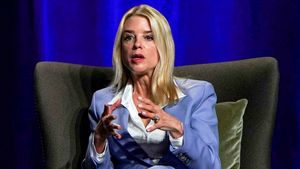
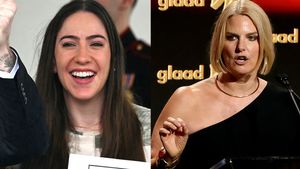

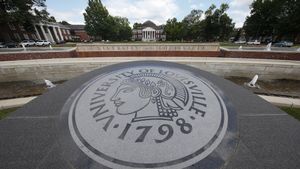



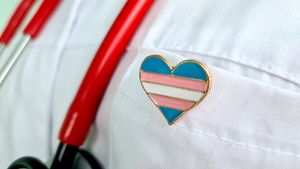




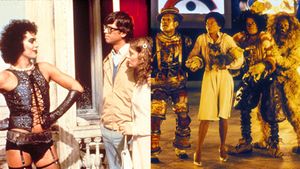

































This Is How Zoom Can Fight Homophobia and Racism For Users
With marginalized communities moving gatherings online, the upcrop in “Zoom bombings” must be dealt with as DaShawn Usher and Marvell L Terry II write in this op-ed.
DaShawn Usher and Marvell L Terry II